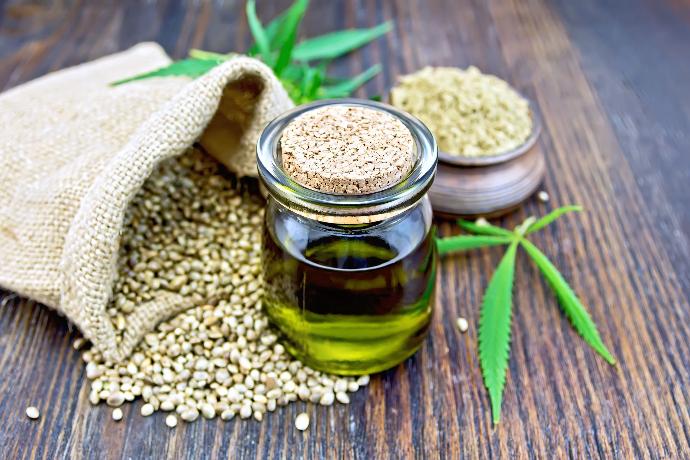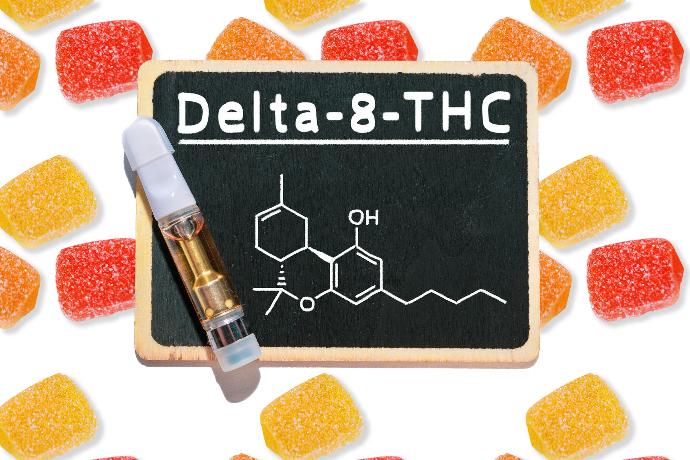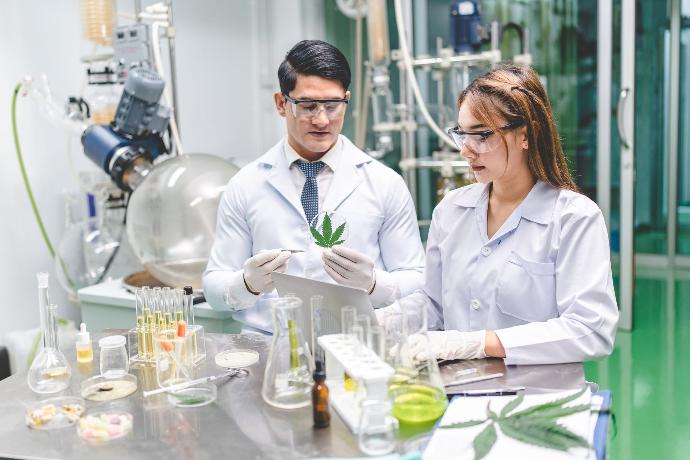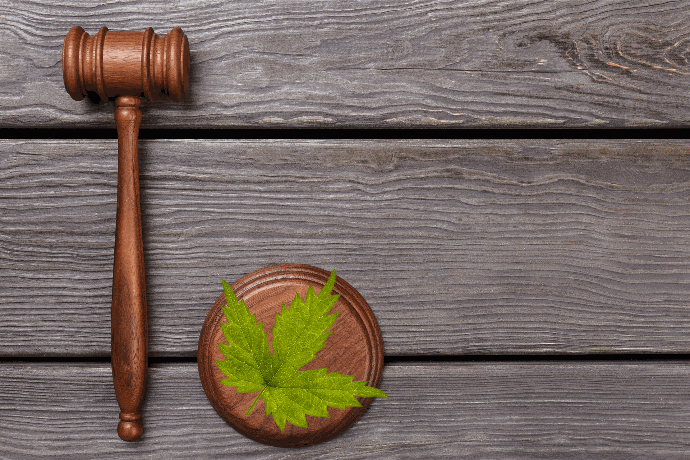The Massachusetts Department of Agriculture Resources (MDAR) also mandated the destruction of products with the minor cannabinoid.
“Cease and desist the manufacture and sale of hemp products containing (THCV) or any synthetic isomers of THC that are not otherwise authorized by state or federal law,” MDAR stated in its letter. The licensed hemp producer was found noncompliant for selling products containing the semi-synthetic cannabinoid. The issue is currently under appeal.
Understanding the 2018 Farm Bill's "Legal Loophole"
The manufacturers and sellers of hemp-derived cannabinoids, which resemble products found in cannabis retail dispensaries, claim these products are legal under the 2018 Farm Bill. This bill removed “hemp” from the definition of marijuana under the Controlled Substances Act (CSA), defining legal hemp as Cannabis sativa L. and its derivatives with low concentrations of delta-9-tetrahydrocannabinol (THC).

By removing “Hemp” from the definition of marijuana, Congress effectively legalized the cultivation and sale of hemp and its derivatives, extracts, cannabinoids, isomers, and acids at the federal level. This change created what some consider a “loophole” for selling products containing intoxicating cannabinoids other than delta-9 THC, such as delta-8 THC and Tetrahydrocannabinolic acid (THCA).
The Regulatory Conundrum in Massachusetts
Unlike marijuana-derived delta-9 THC products sold in cannabis retail dispensaries, products with hemp-derived intoxicating cannabinoids, including THCA and delta-8, are still psychoactive. However, these products do not face the same regulatory or enforcement burdens as marijuana-derived THC products.

In Massachusetts, cannabis is regulated by the Cannabis Control Commission (CCC), while hemp is overseen by MDAR. No agency has clear responsibility for addressing issues with products containing intoxicating hemp-derived cannabinoids.
Passing the THCV Buck
MDAR acknowledged the availability of “hemp-derived” THC products but stated it was an issue for the Department of Public Health (DPH) to address. DPH, in turn, directed the issue to local municipalities or the federal Food and Drug Administration (FDA). The commonwealth’s Alcoholic Beverage Commission (ABC) noted that sales in liquor stores and restaurants were not allowed but deferred enforcement to MDAR.
Efforts to Tackle the THCV Issue and Future Considerations
In 2022, MDAR released a memo clarifying that Massachusetts prohibits the sale and manufacture of hemp-derived delta-8 THC. However, many hemp-derived products, including delta-9 and delta-10 THC, are manufactured out of state and continue to be sold in Massachusetts. This highlights the ineffectiveness of MDAR’s efforts to control the sale of these products.

With no clear regulatory framework, some Massachusetts officials have suggested that the CCC take over the responsibility of regulating hemp. Other proposed solutions include legislative action to make it more difficult or costly for businesses to sell hemp derivatives, such as penalizing the unlicensed sale of hemp-derived cannabinoids.
Implications for the Hemp Industry Nationwide
Efforts to regulate intoxicating hemp derivatives in Massachusetts could have significant consequences. Similar attempts in other states have resulted in unintended outcomes, especially for businesses wanting to sell non-intoxicating cannabinoids like CBD and CBN.
Hemp farmers in Massachusetts are concerned about the potential impact of stricter regulations. The experience of Connecticut, which prohibited synthetic cannabinoids and imposed a “total THC” limit, serves as a cautionary tale. These regulations led to a sharp decline in hemp farming, from 140 producers harvesting 134 acres in 2020 to just 78 producers harvesting less than 13 acres in 2022.

Lawmakers and regulators need to carefully consider how they restrict or regulate synthetic THC products. Strict prohibitions could harm state hemp businesses, especially if restrictions only affect state licensees. Ultimately, federal action may be required to provide clarity and certainty for industry participants and consumers alike.
Laboratory Partner for Edibles Industry Leader
Yamato's suite of cannabis laboratory solutions, including our spray dryer, rotary evaporators, laboratory oven, and Type I water purification system can simplify your product development and lower your overhead cost. Let us help you stay ahead in a competitive market.
Staying ahead in this fast-paced industry means actively shaping the future of cannabis culture. With our dedicated market analysis and bespoke solutions, we empower you to navigate and harness these dynamic shifts. Subscribe to our newsletter and blog for the latest industry insights and to discover how Yamato is revolutionizing R&D in cannabis.